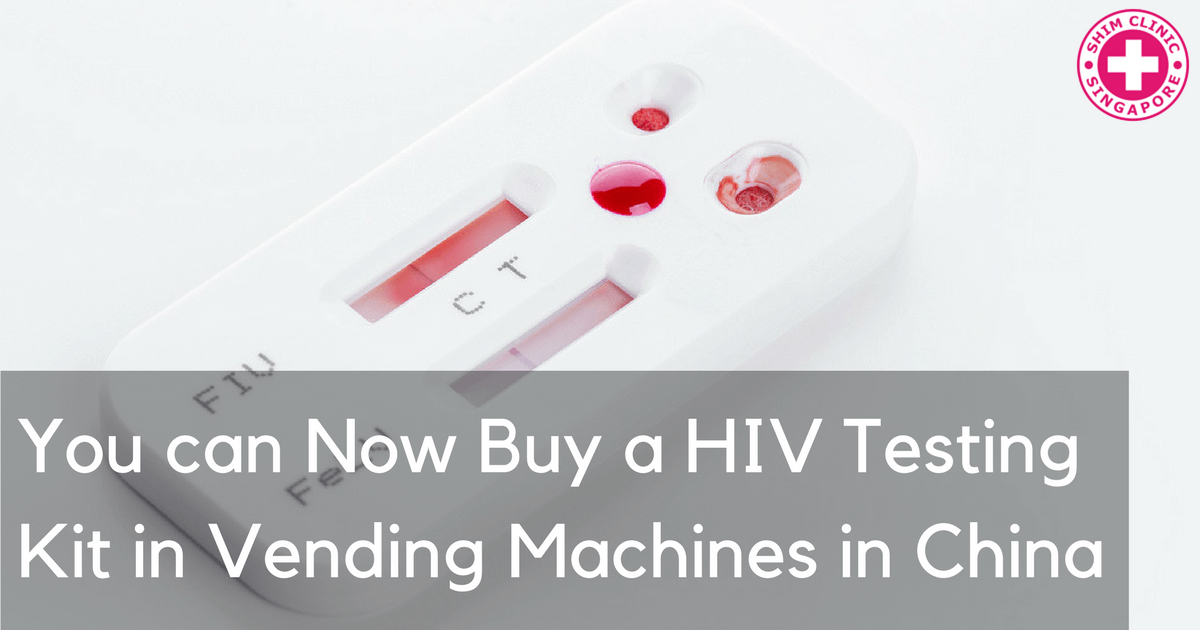The number of Chinese people infected with HIV has risen to a worrying level. Researchers report that over half a million people in China are infected with the Human Immunodeficiency Virus. A university in one of the high-risk areas of China has been able to sell cheap and convenient self-test HIV kits at vending machines.
How does the Test Work?
Students at Southwest Petroleum University are now able to purchase HIV self-test kits just like buying snacks at a vending machine. The kit consists of a plastic cup and a plastic tube. At the cost of 5$ or less, a student can purchase the kit at a vending machine inside the campus, urinate in the plastic cup and draw the urine up into the tube. The student may then return the tub at the vending machine in a specific slot.
Student volunteers from the university are said to check the vending machine twice a day in order to collect the returned tubes and send them to the university hospital. Upon arrival at the hospital, the tubes are sent to the centre of disease control and prevention in the university’s province.
It is important to note at this point that the tubes do not have the names of the users; rather, each tube is distinctively marked by a serial number. The centre for disease control and prevention then announces which serial numbers are positive and which ones are negative. Users may check the results of their tests online autonomously and almost immediately.
Advantages of the Self-Test Kit
The kit is praised for its ability to provide confidentiality. Many people shy away from HIV testing because of the stigma that surrounds the disease. They do not want to be seen at STD testing clinics are meet with people they know at the clinic. The test provides an alternative that allows the user to test for HIV without other people knowing about it.
In addition, the test offered at the university is cheap and affordable to university students. This was reportedly made possible by the contribution of a charity organisation in China. The less money people have to pay, the more HIV testing will be done, therefore increasing the number of people aware of their HIV status.
HIV self-tests are as accurate as those done in HIV testing clinics. This gives the user the confidence that regardless of the result, it is an accurate one.
Disadvantages of the Self-Test Kit
Although the self-test has been made accessible in the university, the same is not true for other regions in the world. Self-tests have not yet been legalised in some countries making accessibility an obstacle.
Furthermore, the window period of the infection may lead to false-negative results or missed infection despite being called accurate. The window period is the duration which a test may not be dependable and needs to be done again usually after a period of 3 to 4 weeks after the first test or as long as 6 months. The test may not be trustworthy because the specific compound it aims to spot may not be existing in adequate quantities for a precise result.
Finally, some experts are against self-test kits due to the lack of counselling that should be done before and after an HIV test. This may be due to the lack of an opportunity for the user to ask questions to the counsellor, discuss risk prevention as well as psychological reactions, especially after a positive result.
Despite the few shortcomings mentioned on the self-test kit, the idea is one that many other institutions can duplicate with a few alterations. The kit can especially be useful in high-risk areas such as universities and colleges where HIV infections are said to increase day in day out due to the risky sexual behaviours of people aged 18-25 years.

